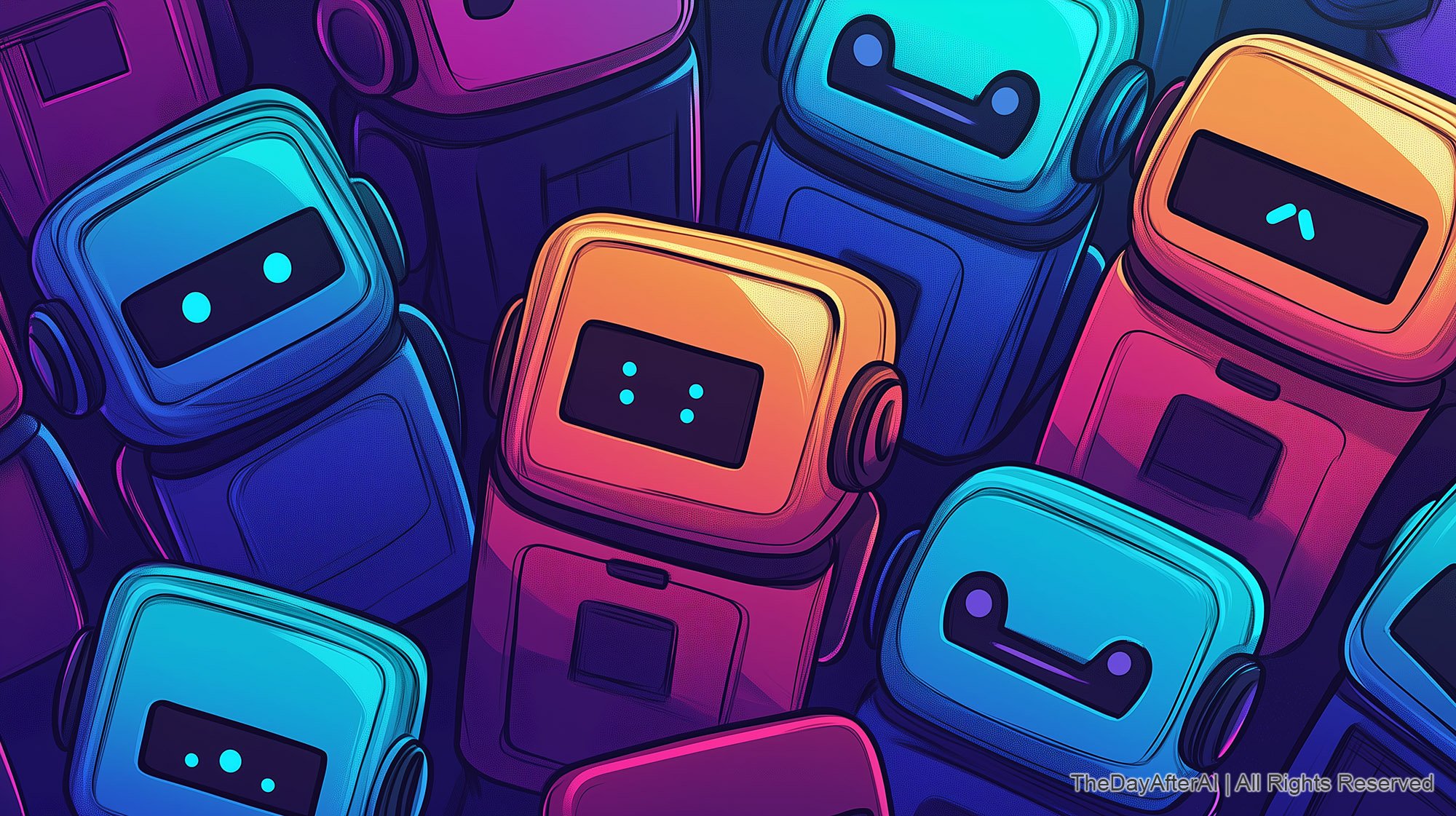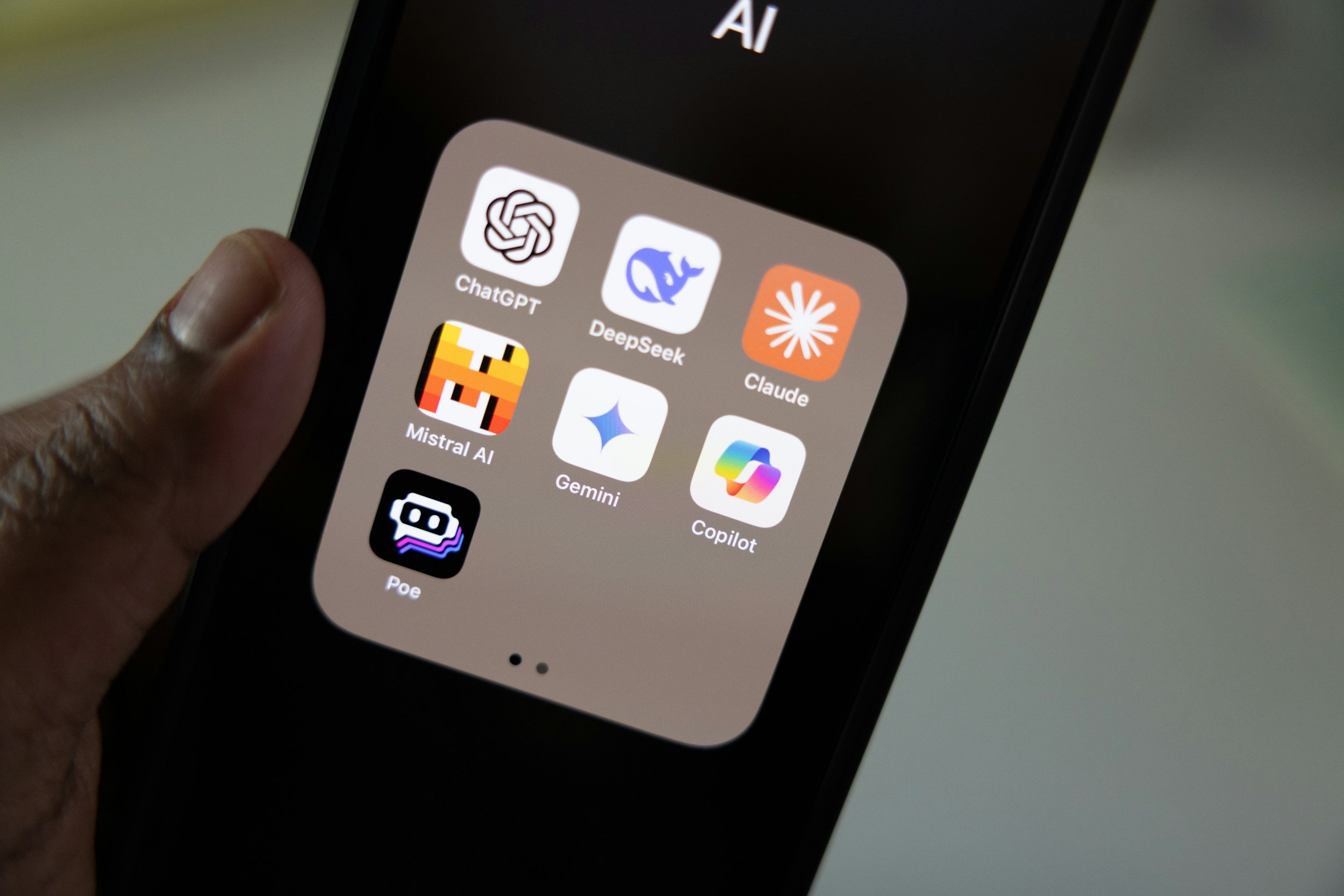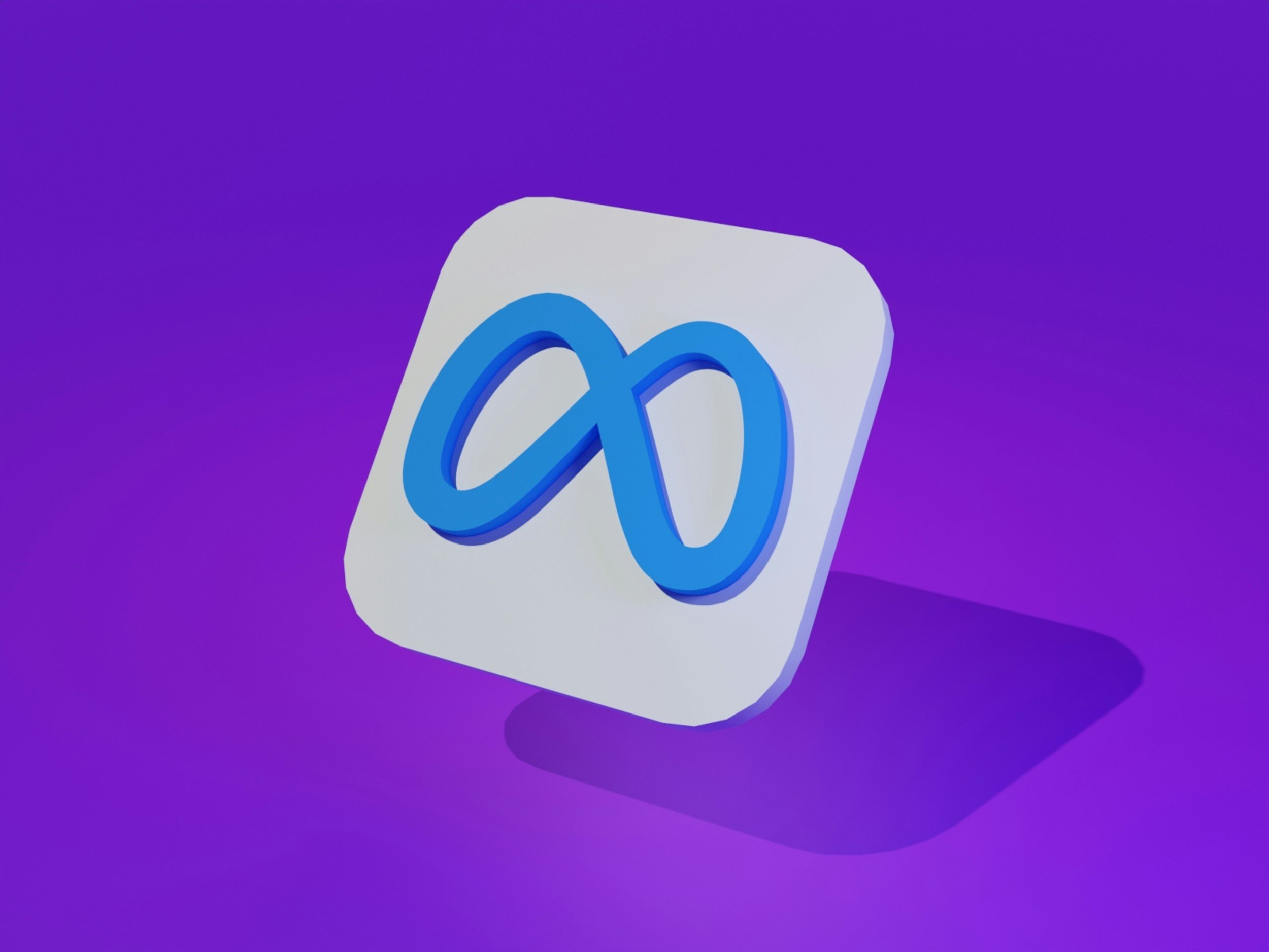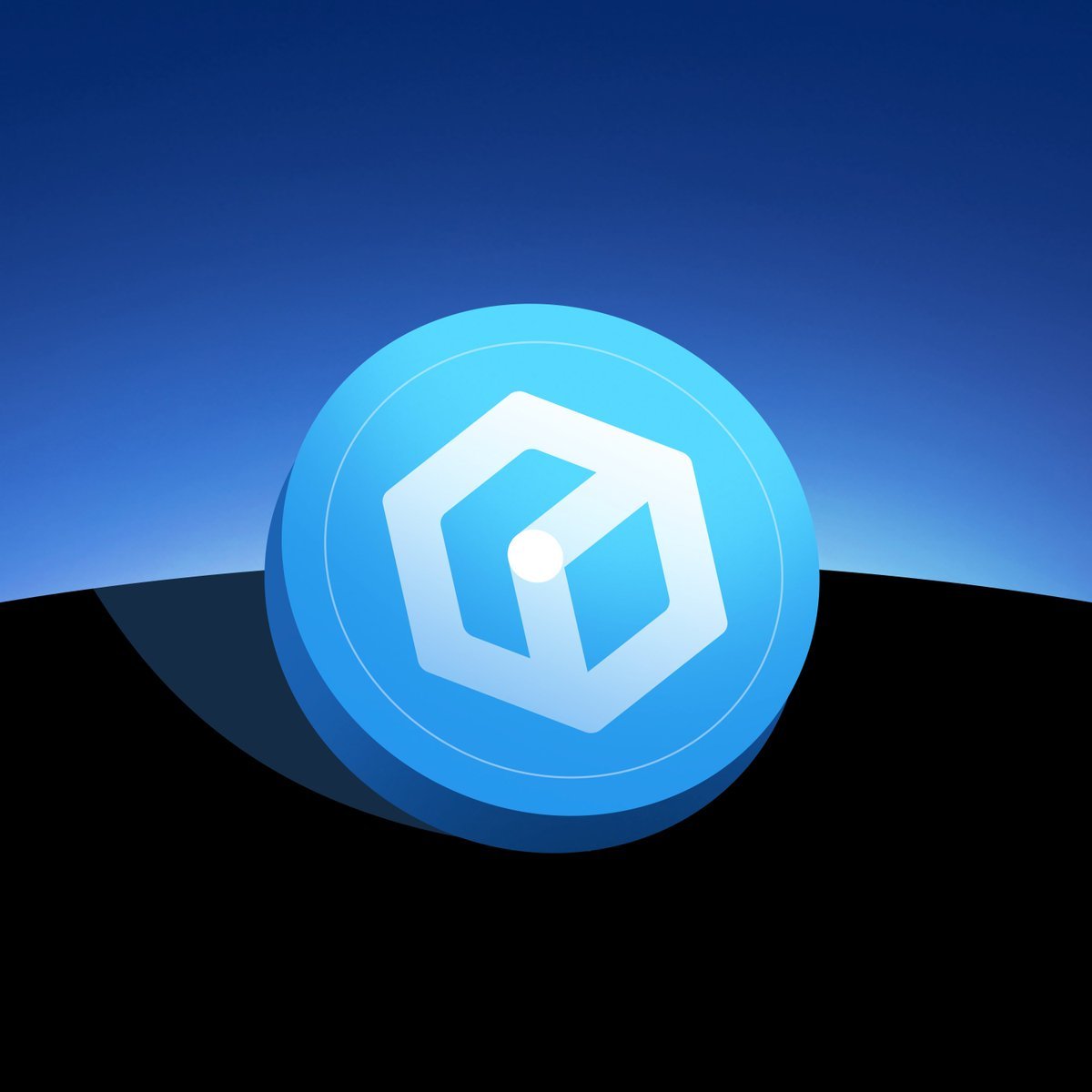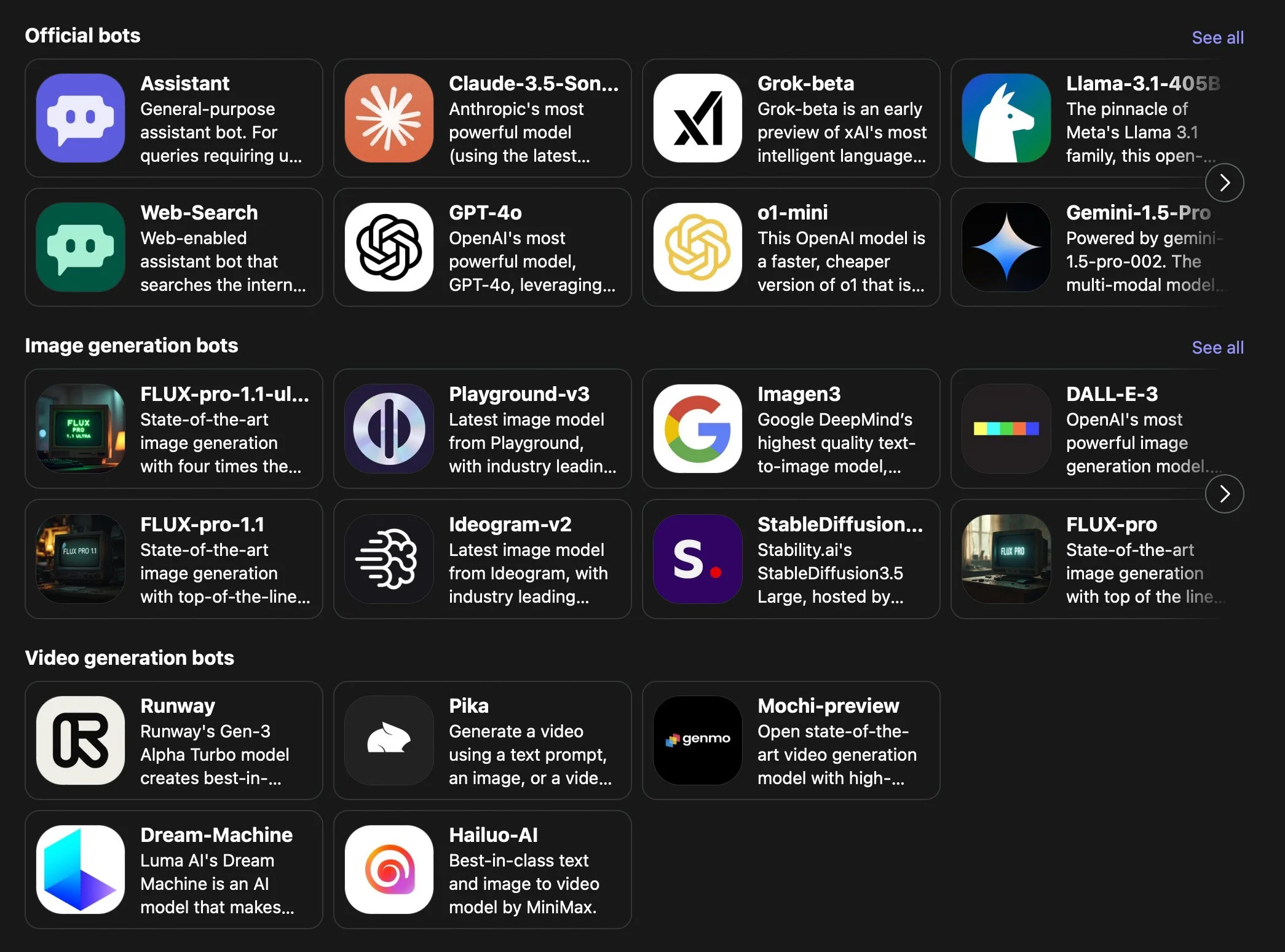Top 10 AI Chatbots You Need to Know in 2025
Image Credit: Jacky Lee
License This Image
As artificial intelligence continues to evolve, AI chatbots have become indispensable tools for both personal and professional use. From drafting emails to generating complex code, these intelligent assistants streamline tasks and enhance productivity. With the surge in popularity following ChatGPT’s success, numerous competitors have entered the market, each offering unique features and capabilities.
[Read More: 2024’s Top AI Chatbot Developments: Discover the Right One for You]
1. ChatGPT: The Market Leader
ChatGPT's integration of the GPT-4o model has significantly enhanced its capabilities, making it a versatile tool for a wide range of users. It excels in generating coherent and contextually relevant text, making it invaluable for writers, marketers, and content creators who need assistance with drafting emails, composing articles, or brainstorming ideas. The model's advanced problem-solving skills are particularly beneficial for professionals and students in STEM fields, offering support with coding, debugging, and complex mathematical computations. Additionally, features like web browsing and image generation expand its utility for researchers and creatives, further solidifying its position as a go-to AI assistant.
Recent advancements have also made ChatGPT more accessible and functional. With the launch of ChatGPT Pro, a premium subscription priced at $200 per month, users gain unlimited access to the latest o1 model and advanced voice mode, offering faster and more accurate responses. Moreover, the ability to interact with ChatGPT directly via WhatsApp by adding the number +1 (800) 242-8478 provides seamless communication without the need for additional applications, bringing its capabilities to a broader audience.
Despite its strengths, there are certain limitations to consider. During peak times, free-tier users may experience downgrades to GPT-4o-mini, which can affect response quality and speed. Additionally, outputs occasionally require human verification to ensure accuracy, especially for critical tasks. Users relying on ChatGPT for essential activities should exercise oversight to avoid potential errors.
[Read More: ChatGPT Pro vs. Plus: Is OpenAI's $200 Plan Worth the Upgrade?]
2. Copilot: Microsoft’s AI Powerhouse
Microsoft's Copilot, powered by GPT-4 Turbo, offers a range of features designed to enhance productivity and streamline workflows. Its integration into Microsoft 365 applications allows users to generate and edit content across Word, Excel, PowerPoint, and Outlook. The recent addition of Copilot Voice enables natural voice interactions, making tasks like drafting emails or creating presentations more intuitive. Furthermore, Copilot's ability to access and reference real-time internet information ensures that users have up-to-date data at their fingertips.
However, there are considerations to keep in mind. Some users have expressed concerns about the integration of Copilot into Microsoft 365, particularly regarding increased subscription costs and the necessity of the AI assistant in their workflow. Additionally, while Copilot automates many tasks, it may occasionally produce errors or require user intervention to ensure accuracy. Adapting to Copilot's features might also involve a learning curve, necessitating time and training for optimal utilization.
Copilot is particularly suitable for professionals seeking to enhance efficiency in document creation, data analysis, and communication within the Microsoft ecosystem. Its seamless integration into widely used applications makes it a valuable tool for individuals aiming to streamline repetitive tasks and improve productivity. Recent advancements, such as the introduction of Copilot Actions, allow users to automate everyday tasks with simple prompts, further enhancing its utility in professional settings.
[Read More: Microsoft’s AI-Powered Assistant: Can Copilot Fly Without a Pilot?]
3. Claude: Privacy-Focused AI Assistant
Anthropic's Claude AI assistant is designed with a strong emphasis on user privacy and data security. Unlike many AI platforms, Anthropic ensures that user data is not utilized for model training unless explicit consent is provided or if interactions are flagged for trust and safety reviews. This commitment to privacy makes Claude particularly appealing to individuals and organizations handling sensitive information and prioritizing confidentiality.
Claude offers a range of functionalities, including assistance with coding, mathematics, writing, and research. Its user-friendly conversational interface caters to both technical and non-technical users. While Claude lacks some features common in other AI assistants, such as native image generation, it compensates by excelling in accuracy and maintaining a privacy-first approach. The Pro version extends usage limits, making it a suitable choice for regular users requiring a reliable and secure assistant for professional or academic tasks.
Recently, Anthropic introduced the experimental "computer use" feature in Claude, allowing it to perform tasks like moving cursors, typing, and browsing the internet. This advancement bridges the gap in functionality, making Claude more versatile and competitive in its offerings. However, as this feature is still in development, users are advised to exercise caution and implement safeguards to maintain security and accuracy during its use.
[Read More: Introducing Claude 3.5 Sonnet: A New Challenger in the AI Arms Race!]
4. Perplexity AI: Interactive Knowledge Explorer
The platform's strengths lie in its user-friendly interface, which ensures easy navigation and interaction. Perplexity AI delivers accurate and reliable real-time answers, making it a dependable tool for research and learning. Its commitment to transparency by citing sources allows users to verify information, enhancing trust and credibility. However, the platform's comprehensive responses may feel overwhelming for some users, and accuracy can vary with the complexity of the query. Additionally, while the free version offers robust features, access to advanced models and unlimited searches is gated behind the Pro subscription.
Perplexity AI has recently introduced several advancements to elevate user experience and functionality. A standout addition is the shopping hub, launched in November 2024, which provides users with detailed product recommendations, including images, prices, and AI-generated summaries. This enhancement streamlines the online shopping experience, offering valuable insights directly within the search interface. Moreover, the "Buy with Pro" feature for U.S.-based subscribers allows seamless purchases through saved billing and shipping details, simplifying transactions and further integrating convenience into the platform.
Perplexity AI is ideal for students, researchers, and professionals seeking quick access to accurate information with verifiable sources. Its real-time data retrieval and source attribution make it invaluable for academic research, content creation, and decision-making. The availability of mobile applications on iOS and Android ensures accessibility on the go, catering to individuals who require reliable information across diverse contexts and environments.
[Read More: AI's Content Dilemma: Navigating Ethics in the Digital Age]
5. Jasper: The Marketer’s Choice
Jasper is a specialized AI writing assistant tailored for professionals in content creation, marketing, and business communication. It offers an extensive suite of tools, including templates for blog posts, video scripts, ad copy, and product descriptions, which simplify the content generation process. The platform’s built-in plagiarism checker and advanced copyediting tools ensure high-quality, polished outputs, making it an essential tool for teams and individuals focused on producing professional-grade content.
Despite its powerful features, Jasper has some drawbacks. The absence of a free tier may deter casual users or those working with limited budgets, as subscriptions start at $49 per month. Additionally, Jasper lacks certain features found in other AI tools, such as real-time web browsing or creative capabilities like image generation.
To stay competitive, Jasper has recently introduced advanced features like personalized content styles, enabling users to tailor outputs to match a brand’s tone and voice. Its SEO integration provides keyword suggestions and optimization tips, ensuring content aligns with search engine requirements while remaining engaging to audiences.
[Read More: AI Transforms Job Hunting: Your Ultimate Guide to Landing the Dream Job]
6. You.com: The Versatile Search Assistant
You.com, formerly YouChat, integrates AI chatbot functionality with a robust search engine, offering real-time web results alongside conversational responses. A standout feature of You.com is its Custom Model Selector, enabling users to toggle between advanced AI models such as OpenAI’s GPT-4, Anthropic’s Claude, and Google’s Gemini Pro. This adaptability makes it a versatile tool for users with diverse needs, delivering tailored responses based on the chosen model.
The platform prioritizes privacy, ensuring user data is not sold, which is a significant strength for those concerned about data security. However, some advanced capabilities are gated behind the YouPro subscription, which unlocks premium features such as unlimited AI chat and image generation, specialized modes (e.g., Genius, Research, and Create), priority AI chat access during peak hours, and early access to new APIs and models.
You.com is particularly well-suited for researchers, students, and professionals who require flexible AI tools for diverse tasks, ranging from in-depth information retrieval to creative content generation.
[Read More: AI Chatbot Showdown: Unveiling the Best Picks!]
7. Writesonic: The Content Creator’s Toolkit
Writesonic is an AI-powered content creation platform designed to help users efficiently generate and refine written material. It offers a comprehensive suite of over 80 tools, including the Instant Article Writer and Article Rewriter, which simplify the production of high-quality content. Additionally, Writesonic’s Chatsonic chatbot enhances functionality with features like voice dictation and image generation, making it a versatile solution for diverse content creation needs.
The platform's strengths lie in its user-friendly interface, customizable templates, and support for various content formats, making it accessible to both beginners and experienced writers. Its SEO optimization tools and fast content processing improve productivity, while collaborative writing features make it ideal for teams. However, output quality can sometimes vary depending on the content type, and the platform may require revisions for specialized topics. While Writesonic supports multiple languages, its language range is somewhat limited, and initial outputs may need customization to align with a unique brand voice.
Writesonic is particularly suited for marketers, content creators, and businesses looking to automate and enhance their writing workflows. Its tools are designed for creating blog posts, social media content, email campaigns, product descriptions, and ad copy, making it valuable for startups, small businesses, enterprises, freelancers, and remote teams. Recent advancements include upgrading over 20 features with a new AI model trained on more current data, enhancing instruction adherence and improving overall content quality.
[Read More: AI vs. Human Writers: How AI Summaries Are Transforming Science Communication and Trust]
8. Gemini: Google’s Advanced AI Assistant
Google's Gemini is a powerful conversational AI integrated into the Google ecosystem, offering features like web-sourced answers and image generation via Imagen 3. Its Gemini Live feature, the new default voice assistant, facilitates natural, multi-turn verbal conversations. Available for free on both iOS and Android platforms, Gemini provides an accessible and intuitive experience for users across devices.
For users seeking enhanced functionality, the Google One AI Premium Plan unlocks advanced features. Subscribers gain access to Gemini Advanced, which provides Google's most capable AI models with improved logical reasoning, analysis, and coding capabilities. Other premium features include integration with Google Workspace apps like Gmail, Docs, and Sheets, making workflows seamless and efficient. Additionally, the plan offers increased token capacity for more detailed prompts, 2 TB of cloud storage for extensive file management, and advanced coding support for developers tackling complex challenges.
Recent advancements, including Gemini 2.0, introduce enhanced speed and multimodal live API for real-time interactions.
[Read More: Google's Gemini AI Chatbot App Now Available on iPhone]
9. Socratic: The Educational Companion
Socratic by Google is an AI-powered educational app designed to assist high school and university students in understanding their coursework. Available on both iOS and Android platforms, the app allows users to input questions via text or by scanning worksheets, providing curated answers accompanied by engaging graphics and visual explanations. Socratic supports a wide range of subjects, including Science, Math, Literature, and Social Studies, making it a versatile tool for students seeking homework assistance and concept reinforcement.
The app's strengths include its user-friendly interface, quick response time, and the ability to provide detailed explanations and solutions to homework problems. It offers a variety of resources, such as videos and step-by-step explanations, tailored to different learning styles. Additionally, Socratic is completely free, making it accessible to a broad audience. However, some users have noted that the app may struggle with very complex math or physics questions.
Socratic is particularly suitable for high school and university students who need extra support in their studies. It's ideal for those seeking quick assistance with homework, clarification of complex concepts, or preparation for exams. Teachers can also benefit from using Socratic to find additional resources for their lessons and to help students who need extra support outside of class.
[Read More: Google Unveils "Learn About": Transforming Education with Interactive AI Tools]
10. HuggingChat: The Customizable Open-Source Option
HuggingChat, developed by Hugging Face, is an open-source AI chatbot designed to facilitate seamless and intelligent interactions between humans and machines. Leveraging advanced machine learning and natural language processing technologies, it provides a robust framework for developers and businesses to integrate sophisticated chat functionalities into their applications. HuggingChat supports real-time interaction, multi-language support, and customizable responses.
The platform's open-source nature allows for unparalleled customization, enabling users with technical expertise to tailor the AI's responses and behaviour to suit specific needs or industries. This flexibility is particularly beneficial for developers seeking to build personalized AI assistants or integrate conversational AI into existing workflows. However, some users have noted that HuggingChat may have limited accuracy compared to larger, more established models, and certain features may require additional setup. Additionally, licensing issues need to be addressed before it can be used commercially, as its model is based on Meta’s LLaMA, which is not permitted for commercial use.
HuggingChat is particularly suitable for developers, researchers, and businesses that prioritize open-source solutions and value customization and privacy. Its ability to run locally on personal devices and support for multiple languages make it accessible to a global audience. Recent advancements include the introduction of community tools, allowing users to turn any Space on Hugging Face into a tool that can be used by models directly from HuggingChat. This feature expands the modalities available, enabling functionalities such as image understanding and video generation, thereby enhancing the platform's versatility and application scope.
[Read More: The Battle for AI's Future: Open vs. Closed Source]
How to Choose the Right AI Chatbot for You
Selecting the ideal AI chatbot from the myriad of options available can be daunting. To make an informed decision, consider the following key factors:
1. Purpose and Use Case:
Personal vs. Professional: Determine whether you need the chatbot for personal tasks like managing schedules and answering general queries or for professional purposes such as generating marketing copy, coding assistance, or conducting research.
Specific Features: Identify the features that are most important to you. For instance, if you require advanced coding support, ChatGPT or Copilot might be ideal. For marketing and content creation, Jasper stands out.
2. Budget and Pricing:
Free vs. Paid Plans: Assess your budget to decide whether a free chatbot meets your needs or if investing in a premium plan offers better value. Tools like ChatGPT and Perplexity AI offer robust free versions, whereas Jasper requires a subscription.
Scalability: Consider whether the chatbot can scale with your growing needs, especially if you anticipate increasing usage or require additional features in the future.
3. Ease of Use and Accessibility:
User Interface: A clean and intuitive interface can significantly enhance your user experience. ChatGPT and Perplexity AI are known for their user-friendly designs.
Platform Availability: Ensure the chatbot is accessible on your preferred devices, whether it's via web, iOS, Android, or dedicated applications. For example, Perplexity AI and Copilot offer mobile apps for on-the-go access.
4. Integration and Compatibility:
Ecosystem Integration: If you heavily use specific platforms like Google services, Gemini by Google offers seamless integration. Similarly, Copilot integrates well with Microsoft's ecosystem.
Customizability: For those needing tailored solutions, open-source options like HuggingChat allow for extensive customization to fit unique requirements.
5. Privacy and Data Security:
Data Handling Policies: If privacy is a paramount concern, Claude by Anthropic emphasizes user data protection and transparency, ensuring your interactions remain secure.
Compliance: Verify that the chatbot complies with relevant data protection regulations, especially if you're using it for sensitive or confidential tasks.
6. Performance and Reliability:
Server Stability: Reliable performance without frequent outages is crucial for consistent productivity. While ChatGPT leads the pack, having alternatives like Copilot ensures you’re not left stranded during downtimes.
Response Quality: Evaluate the accuracy and relevance of the chatbot’s responses. Tools like Perplexity AI excel in providing sourced and verifiable information, enhancing trustworthiness.
7. Support and Community:
Customer Support: Accessible and responsive customer support can be invaluable, especially when troubleshooting issues or seeking guidance on advanced features.
User Community: A vibrant user community can offer additional resources, tips, and collaborative opportunities to maximize the chatbot’s potential.
By carefully considering these factors, you can select an AI chatbot that not only meets your immediate needs but also adapts to your evolving requirements, ensuring a productive and seamless experience.
[Read More: Top 10 AI Terms of 2024: Key Innovations Shaping Artificial Intelligence]
Source: ZDnet

